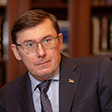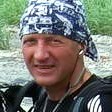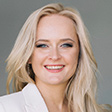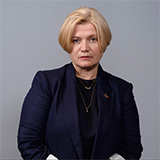17 лютого 2012, 08:00
Чи є Україна віртуальна держава мафії, як і Росі?
Уривок з Тарася Кузя "Сучасна історія України" (буде надруковано 2012 року)


Luke Harding draws on his 2007-2011 assignment as The Guardian's Moscow correspondent and on U.S. diplomatic cables provided by WikiLeaks that describe Russia as a 'virtual mafia state.' In 2011, the Russian authorities expelled Harding from Russia. Spanish National Court Prosecutor Jose 'Pepe' Grinda Gonzalez first coined the term 'virtual mafia state' and reported in US diplomatic cables sent from Madrid. Grinda, a Special Prosecutor for Corruption and Organised Crime, 'considers Belarus, Chechnya and Russia to be virtual 'mafia states' and said that Ukraine is going to be one. For each of those countries, he alleged, one cannot differentiate between the activities of the government and OC (organised crime) groups.' Russian and Ukrainian kleptocracies combine authoritarianism and massive corruption where, 'officials, oligarchs and organised crime bosses are bound together to create a "virtual mafia state".' US diplomatic cables reveal massive levels of money laundering, personal enrichment, state protection for gangsters, funds stashed in offshore zones and extortion. Russia is not a state, Harding believes, but a, 'private-sector money making business, in which stealing is a pathological habit.'
Harding discusses ten criteria that make Russia a 'virtual mafia state' that are discussed below in a comparative context with Ukraine.
First, security services (FSB in Russia, SBU in Ukraine) are over-manned successors to the Soviet KGB and all-powerful. The FSB and SBU have a degree of unbridled independence that did not exist for the KGB, controlled by the Soviet Communist Party. The FSB, Harding writes, offers protection to gangsters and extorts bribes from private big business sector and the FSB, 'employs the mafia for its own opaque missions.' Russian leaders protected organised crime boss Mogilevich, who is on the FBI's most wanted list and was heavily involved in Russia and Ukraine's energy sector.
Second, Soviet political culture of xenophobia, spy-mania and conspiracy theories run through the working culture of the FSB and SBU who assume foreigners (diplomats, journalists, businesspersons and human rights activists) are Western spies. The FSB and SBU believe democratic revolutions are, 'carried out by CIA spies carrying bagful's of dollars.' Putin, Yanukovych, the FSB and SBU are, 'suspicious, deeply paranoid, unfamiliar with the non-Russian world, and prone to irrational or emotional acts.' The former Soviet KGB provides the working culture of the FSB and SBU meaning officers in both security services continue to believe their raison d'etre is to protect the state and ruling elites and destroy enemies perceived as a threat to them. The FSB and SBU view domestic opponents of Putin and Yanukovych as lackeys of the West.
Third, ruling elites are unaccountable and seek a monopolisation of economic and political power. Russians and Ukrainians feel powerless in the face of an unaccountable and mighty state and believe they have no influence over the authorities.
Fourth, elites have no remorse for crimes they have committed and rule with impunity. Russian President Putin was utterly cold in his handling of the sinking of the Kursk submarine in 2000 and Lugovoi was similarly nonchalant when the British authorities accused him of assassinating Litvinenko in London in 2006. Harding writes about Lugovoi, 'Some vital moral part is empty and lacking, as if someone had hacked off his conscience with a pair of giant scissors.' President Kuchma lacks a moral compass as seen by him never showing any remorse for accusations of his role in the 2000 murder of journalist Gongadze. In December 2011, after charges were dismissed against him he demanded an inquiry into who was behind the 'provocateurs.' Kuchma's memoirs repeat his often-cited claims that Western intelligence agents organised anti-regime protests in 2000-2004 and the Gongadze murder was a U.S.-backed conspiracy to replace him with Yushchenko. Harding writes, 'The result is a lack of empathy for anyone who disagrees with him. Under his tutelage Russia has become bullying, violent, cruel and – above all – inhuman.'
Fifth, show trials of political opponents instill fear, subdue and marginalise the opposition so that ruling elites can continue to be unaccountable. This is as true of Mikhail Khodorkovsky's imprisonment in Russia as it is of Tymoshenko's in Ukraine. More than 50 activists and journalists have suffered political persecution during Yanukovych's first two years in power and the number of people dying in prisons doubled in 2010-2011 compared to the year before.
Sixth, model of the Soviet Communist Party is used for Putin's Unified Russia party and Yanukovych's Party of Regions, allies since 2005. As political machines they act as bulldozers destroying everything in their path while acting as vacuum cleaners, they 'expropriate' the country's wealth. Both political parties promise modernisation but instead bring Brezhnev-era stability and stagnation.
Seventh, eclectic neo-Soviet nationalism permeates the Putin and Yanukovych political systems. Harding says Putin, 'created a pastiche neo-Soviet Russia.' Putin and Yanukovych's political systems combine nostalgia for the Soviet Union, prioritisation of Russian language and culture, hatred of Ukrainian nationalism and deep distrust of the West, particularly the U.S., Germany and NATO. Claiming a monopoly on patriotism, they as in the USSR, accuse the democratic opposition of being unpatriotic agents of the West. The imprisonment of Tymoshenko, Lutsenko and others by the Yanukovych administration are the first cases of political repression since Soviet Ukrainian leader Shcherbytsky rule in the 1970s.
Eighth, Russian and Ukrainian kleptocracy's merge organised crime, corruption and the state in a closely bound nexus. Organised crime has close ties to senior leaders of both countries. Harding describes Russia as a nexus of, 'Crime dons, trade attaches, ministers, money laundering, smuggling, kidnapping, and a security service that employs the mafia for its own opaque missions.' Ukrainian gas tycoon Firtash admitted organised crime boss Mogilevich launched his business career to US Ambassador William Taylor. The Unified Russia party, pro-Putin Russian Liberal Democratic Party, Ukraine's Party of Regions and Russian nationalist parties in the Crimea have provided protection to criminals and members of organised crime.
Ninth, virtual policies undermine plans for economic modernisation, fighting corruption and European integration continuing the tradition of Soviet era virtual five-year plans. Russian and Ukrainian leaders only have political will in two areas, their self-enrichment and punishment of their opponents.
Tenth, Russian and Ukrainian Soviet doublespeak in Russian and Ukrainian political culture continues to influence contemporary politics and international affairs. The 1936 Soviet constitution granted many democratic rights to Soviet people at the same time as Stalin's policies of artificial famine and terror were murdering millions of people. Russia does not seek NATO and the EU membership and defines its system as a 'sovereign democracy.' Ukrainian leaders claim they are building democracy and seeking integration into Europe while destroying democracy and isolating Ukraine internationally. Russian and Ukrainian leaders lambast Western criticism using Soviet style language that brings out their own inferiority complexes. The Yanukovych administration blames Germany for Ukraine's failed bid to integrate into Europe while steadfastly ignoring growing criticism that its own roll back on democracy that is closing the door to Europe. Unaccountable elites never take responsibility for their actions.
Luke Harding, Mafia State (London: Guardian Books, 2011).
L.Harding, 'WikiLeaks cables: Russian government 'using mafia for its dirty work' The Guardian, 1 December 2010.
http://www.guardian.co.uk/world/us-embassy-cables-documents/247712?INTCMP=SRCH
and http://wikileaks.org/cable/2010/02/10MADRID154.html#
Harding, 2011, p.229.
Harding, 2011, p.230.
Harding, 2011, p.234.
Harding, 2011, p.50.
Harding, 2011, p.48.
Harding, 2011, p.39.
Kuchma, Posle Maidana, 2007.
Harding, 2011, p.292.
Harding, 2011, p.8.
Harding, 2011, p.234.







